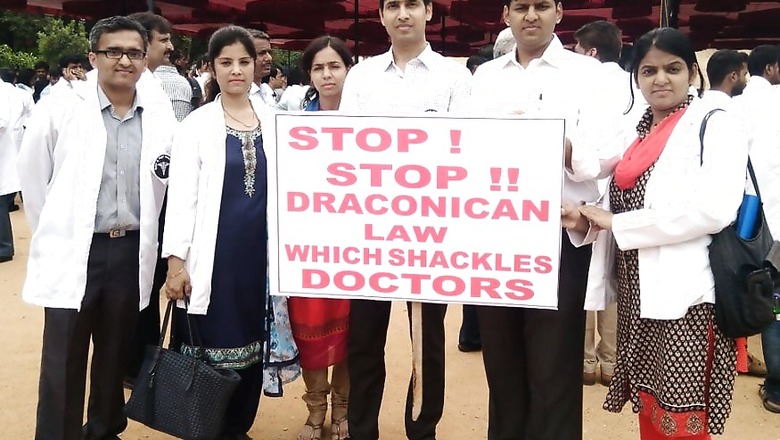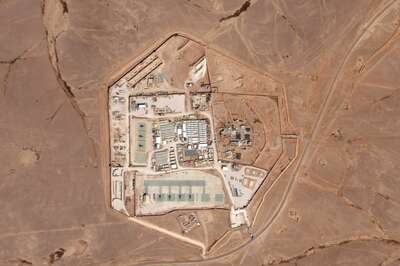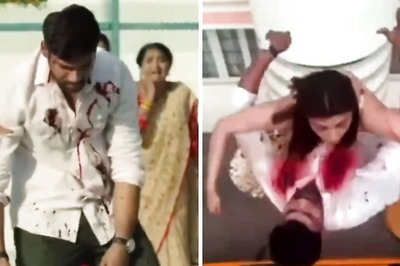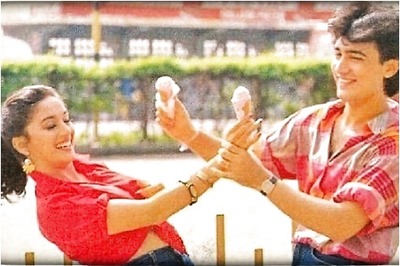
views
Bengaluru: Over 1,500 doctors from across Karnataka descended on the streets of Bengaluru against the proposed law to regulate private practice of doctors and the way private hospitals are managed in the state.
The strike brought together some of the most popular faces and voices -- from the likes of Dr Devi Shetty of Narayana Hrudayalaya and Dr Sudarshan Ballal of Manipal Hospital -- to young doctors from rural areas who came to the capital just for this.
The demonstration -- at the city's Freedom Park -- comes a day after the Karnataka government proposed to bring in a Bill in the State Legislature that seeks to lay down minimum standards of infrastructure at private medical centres (allopathic or alternate), fix costs of services and curb malpractice.
On Thurday evening, representatives of hospital managements had also met Chief Minister Siddaramaiah, raising their concerns with him against the proposed law. The CM had said he would hold another round of discussions with them after consulting the Health Minister.
The proposed law also seeks to increase penalties for medical practitioners who are running institutions without registration, with even jail terms of up to three years. This (and its possible misuse by officials) is, in fact, the main bone of contention that the doctors are fighting.
"The regulation which they are planning can effectively result in imprisonment for the doctors if the patient is unhappy. The patient need not even die. If the patient is unhappy, he can file a case in a local body and they can imprison us. So that has created a lot of fear among the minds of the doctors. When a doctor treats a patient, he should be confident about himself and the outcomes. If you plant the fear that if the patient is unhappy and if he dies, I can land in prison, I can't take the right decision," said Dr Devi Shetty, adding that such penalties don't exist anywhere in the world.
There are already institutions like the consumer forum, civil and criminal courts, human rights commissions in every district that oversees cases of malpractic, he pointed out.
"Do we need another body? Do we need to empower the local bodies to have the powers to imprison the doctors? This is what our main problem is. Nowhere in the civilised world, imprisonment is one of the punishments for the doctor," Dr Shetty said.
Dr Sudarshan Ballal, chairman of Manipal Hospital, said the bill in current form is very draconian.
"We think it is unfair. So we request the government to reconsider. Ultimately all of us work for patients. I am sure there is a better way to help citizens if the government and private sector sit together and come up with things that are reasonable."
The proposed law has a provision for district-level comittees to be set up to address patients' grievances.
It also mandates that hospitals must not insist on any advance payment of money from patients during an emergency, nor demand amounts due before handing over dead bodies (that this must be collected later).


















Comments
0 comment